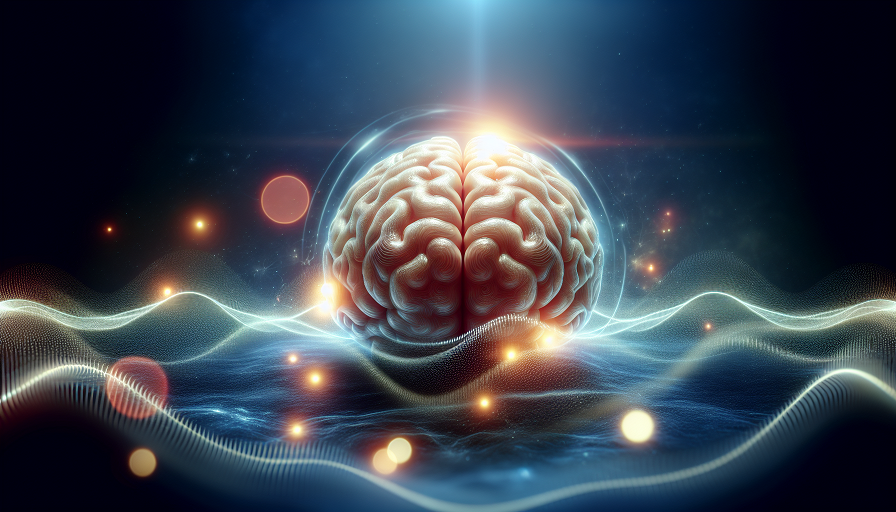
Adaptogens have gained significant attention in recent years as natural substances that help the body adapt to stress and maintain balance. But could they also play a role in enhancing neuroplasticity—the brain’s ability to adapt, rewire, and grow throughout life? With their unique properties and long history of use in traditional medicine, adaptogens may offer a promising avenue for supporting brain health and cognitive flexibility.
Contents
What Are Adaptogens?
Adaptogens are natural substances, typically derived from plants, that are believed to help the body resist physical, emotional, and environmental stressors. Unlike stimulants or sedatives, adaptogens work to balance bodily systems and promote homeostasis, making them versatile tools for overall health.
Key characteristics of adaptogens include:
- Non-Specific Action: Adaptogens help the body adapt to a wide range of stressors, rather than targeting one specific issue.
- Normalization: They help regulate physiological functions, bringing the body back to balance.
- Safety: Adaptogens are generally non-toxic and safe for long-term use when taken in recommended doses.
Popular adaptogens include ashwagandha, rhodiola rosea, ginseng, holy basil, and cordyceps, among others. These herbs have been used for centuries in traditional medicine systems such as Ayurveda and Traditional Chinese Medicine (TCM).
What Is Neuroplasticity?
Neuroplasticity is the brain’s ability to reorganize itself by forming and modifying neural connections in response to learning, experience, and environmental changes. This adaptability is essential for processes like memory, learning, emotional regulation, and recovery from brain injuries.
Neuroplasticity operates through two primary mechanisms:
- Structural Plasticity: Physical changes in the brain’s structure, such as the growth of new neurons or synapses.
- Functional Plasticity: The brain’s ability to transfer functions from one region to another, often in response to damage or new challenges.
While neuroplasticity occurs naturally, certain factors—such as stress, poor diet, and lack of mental stimulation—can hinder it. This is where adaptogens may come into play.
How Adaptogens May Enhance Neuroplasticity
Adaptogens are believed to influence several biological pathways that could enhance neuroplasticity. Here’s how they may work:
Reducing Stress and Cortisol Levels
Chronic stress is a major impediment to neuroplasticity, as elevated cortisol levels can damage neurons, particularly in the hippocampus—a brain region critical for learning and memory. Adaptogens like ashwagandha and rhodiola are known to lower cortisol levels, creating a more favorable environment for neural growth and adaptation.
- Example: Studies show that ashwagandha reduces stress and improves memory, potentially supporting neuroplastic processes.
Promoting Neurogenesis
Some adaptogens may stimulate neurogenesis, the process of generating new neurons. For instance, compounds in lion’s mane mushroom have been shown to promote the production of nerve growth factor (NGF), which supports the growth and survival of neurons.
- Example: Animal studies suggest that lion’s mane mushroom enhances memory and cognitive function by promoting neurogenesis.
Enhancing Brain-Derived Neurotrophic Factor (BDNF)
BDNF is a protein that plays a critical role in synaptic plasticity and neural health. Adaptogens like ginseng and cordyceps may boost BDNF levels, supporting the formation of new neural connections.
- Example: Research indicates that ginseng extracts improve learning and memory, potentially through BDNF modulation.
Combating Oxidative Stress
Oxidative stress damages neurons and impairs brain function. Many adaptogens, such as holy basil and rhodiola, are rich in antioxidants that neutralize free radicals, protecting brain cells and enhancing adaptability.
- Example: Rhodiola’s antioxidant properties have been linked to improved cognitive performance under stress.
Supporting Energy Metabolism
Brain adaptability requires energy, and adaptogens like cordyceps can enhance cellular energy production, ensuring that neurons have the fuel they need to form and maintain connections.
- Example: Cordyceps has been shown to improve mental clarity and reduce fatigue by supporting mitochondrial function.
Scientific Evidence Supporting Adaptogens and Brain Health
While research on adaptogens and neuroplasticity is still emerging, several studies highlight their potential benefits:
Ashwagandha
Studies have found that ashwagandha reduces stress and improves memory, suggesting its role in promoting a neuroplastic-friendly environment.
Lion’s Mane Mushroom
Research on lion’s mane has demonstrated its ability to enhance cognitive function and memory in both animal and human studies, likely through its influence on NGF.
Ginseng
Ginseng has been associated with improved cognitive performance, reduced inflammation, and increased BDNF levels.
Rhodiola Rosea
Rhodiola has shown promise in improving mental clarity and reducing stress-related cognitive decline, particularly in high-pressure situations.
How to Incorporate Adaptogens into Your Routine
Adding adaptogens to your daily routine can be simple and enjoyable. Here are some practical tips:
- Choose the Right Form: Adaptogens are available in various forms, including powders, capsules, teas, and tinctures. Choose the one that best suits your preferences.
- Start Small: Begin with a low dose to assess your tolerance, and gradually increase as needed.
- Combine with Brain-Healthy Foods: Incorporate adaptogens into smoothies, teas, or meals alongside other brain-boosting ingredients like berries and nuts.
- Be Consistent: Regular use is key to experiencing the benefits of adaptogens, as their effects may take time to build.
Precautions and Considerations
While adaptogens are generally safe, it’s essential to use them responsibly:
- Consult a healthcare professional before starting adaptogens, especially if you have existing medical conditions or take medications.
- Be mindful of quality—choose high-quality, reputable brands to ensure safety and effectiveness.
- Monitor your response, as individual reactions to adaptogens can vary.
Adaptogens offer a natural and promising approach to supporting neuroplasticity and brain health. By reducing stress, promoting neurogenesis, and combating oxidative damage, these powerful herbs may enhance the brain’s ability to adapt, learn, and thrive. While more research is needed to fully understand their effects on neuroplasticity, the existing evidence is encouraging. Consider incorporating adaptogens like ashwagandha, lion’s mane, and rhodiola into your routine to support a more resilient and adaptable brain. With consistent use and a balanced lifestyle, adaptogens can be a valuable ally in your journey toward lifelong cognitive health.

